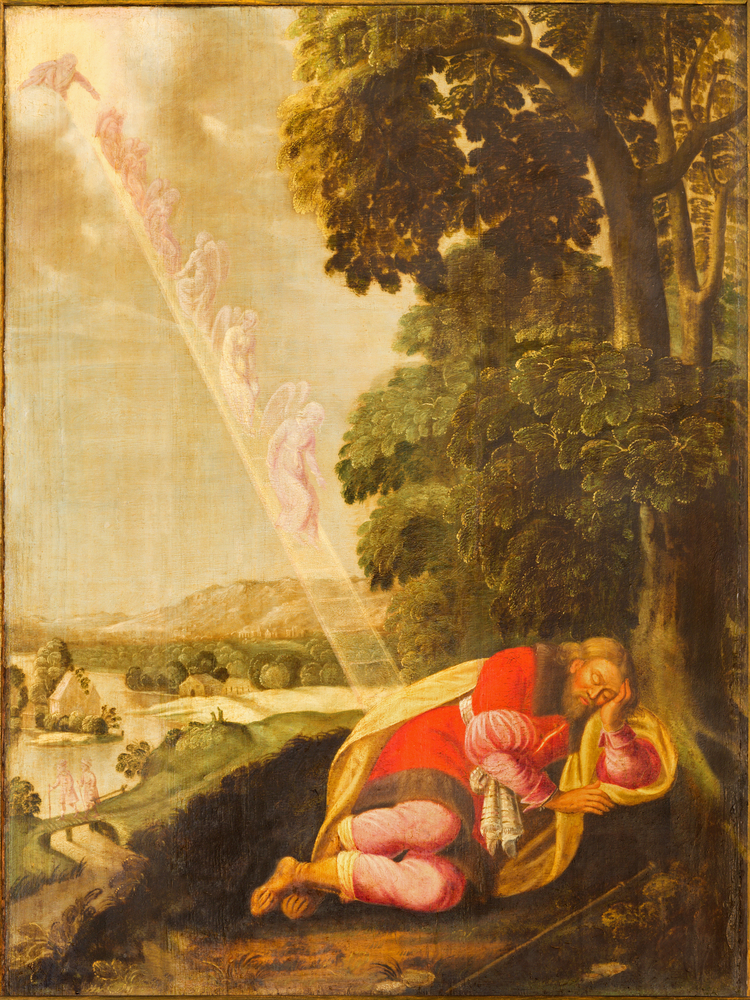Faith Seeking Understanding (2) – A Fellowship of The Spirit
The man that wandereth out of the way of understanding shall remain in the congregation of the dead.[1]Proverbs 21:16
In the first instalment on understanding, I wrote that it’s an ability that enables us to straddle heavenly and earthly places at the same time in order to decode the mysteries of heaven and respond appropriately to the schemes of God for our lives and His world. In this instalment, I’ll explore how one might gain understanding.

There are those that suppose that wisdom and understanding come with age, but Elihu the Buzite said:
“Great men are not always wise: neither do the aged understand judgment.”[2]Job 32:9
That makes a whole lot of sense considering that although the world is blessed with billions of the aged, the trajectory of our collective journey points to a world that’s lacking in wisdom and understanding. If age and experience do not guarantee a capacity for understanding, where is understanding to be found?
The good Book has a lot to say on the matter and every inspired contributor knows how one might possess this rare ability. The consensus is that understanding is God’s to give.
So is it simply a question of praying to God for understanding? St James The Just said yes, albeit with a caveat.[3]James 1:5-7 Most of the inspired writers of the books of the Bible align with James on the matter. Wisdom and understanding are God’s to give and he gives liberally. But methinks it’s more nuanced than slam dunk.
What one is given becomes a possession, but Solomon demonstrated that no one owns wisdom and understanding. He was explicitly given wisdom but acted exceedingly foolishly! So what manner of ‘giving’ is that? Ahithophel was so wise his counsel was considered an oracle,[4]2Kings 16:23 but God turned his good counsel to foolishness.[5]2Samuel 17:14 God did not take away his capacity for sagacity, but denied it the power to affect.
In the course of his musings on his tragic experience, Job explored the nature of understanding. He said understanding couldn’t be bought or possessed because it was both a path and a place known only to God.[6]Job 28:20-23 Now that is a revelation that wisdom and understanding appear to agree with.
In the only book of scripture to give wisdom and understanding a voice, those twinned spirits said as much:
“Now therefore hearken unto me, O ye children: for blessed are they that keep my ways[7]Proverbs 8:32….Blessed is the man that heareth me, watching daily at my gates, waiting at the posts of my doors.[8]Proverbs 8:34
The question therefore is not one of possessing understanding, but walking in her and camping at her gates. Achieving these ought to be easy. In Proverbs we encounter a phenomenon that yearns for a fellowship with us, standing at the gate of the city, at the top of the high places, by the ways of the paths, crying and inviting everyone, anyone, whosoever will pay attention to take in what she’s offering.[9]Proverbs 8:1-4
So if understanding is so desirous of a fellowship with us, why does it remain preciously scarce? If as it does, the Good Book speaks so richly and tantalisingly of the good, the power and potential infinite gains of understanding, why aren’t folks selling all they have to buy it? If, as it does, the Bible flows with instructions and gives guidance on the where and how of getting understanding, why aren’t folks taking cues from the manual?
The simple answer to these posers is: God. God owns understanding.[10]Proverbs 8:22 God is possessive over it.[11]Job 28:21 He is not overly generous with it – hence, we say ‘common sense’ is not common. And he drives a hard bargain with it. Understanding is experiential. It requires continued and sustained communion with God.
As recounted in the previous post, Rabbi Ben Levi came into a deeper understanding of the works of Prophet Elijah when he walked with him. But before Prophet Elijah allowed Rabbi Ben Levi to go along with him on his journeys, both reached an agreement that the Rabbi wouldn’t ask any questions concerning the ways of the Prophet. There are two aspects to the story Elijah/Rabbi Ben Levi story: they had an agreement and they walked together.
The Hebrew word for walk is הלך hâlak. Scripture uses the term to ‘walk’ הלך hâlak with idiomatic idiosyncrasies. Scripture tells us that Enoch walked with God and God took him. Through Noah, we learn that to walk with God is to be just and perfect,[12]Genesis 6:9 with Abraham we learn that to walk before God is to position one’s self for an invitation to a covenant relationship[13]Genesis 17:1 and that the fulfilment of God’s promises to Abraham depended on Abraham’s children “walking in all the ways of God”. [14]Genesis 18:19 When used metaphorically, hâlak can mean “walk” or “to go along with” implying intercourse, agreement and acceptance. All the ingredients for a covenant relationship. This brings us back to Prophet Amos’ incisive question:
“Can two walk together except they be agreed?”[15]Amos 3:3
Covenants are articles of a mutual exchange of privileges and responsibilities between parties. It’s a binding agreement to be to the other, who and what you promised to be and vice versa. It’s a fellowship of the spirit. An infraction of the terms of agreement could cause a breach of the covenant and some or all the privileges that go with it. Gifts of the Holy Spirit dwell within the ambit of a fellowship with the Holy Spirit. They can’t be taken for granted, they are not permanent possessions. When Eli’s sons took priestly privileges for granted,[16]1Samuel 2:27-24 there was spiritual blackout in Israel.[17]1Samuel 3:1
The one person who expressly desired and got wisdom from God was Solomon. The context within which the request was made and granted is helpful to gain a handle on getting understanding, for wisdom is that which a person with understanding expresses.
Solomon had just concluded an act of lavish worship when he had divine visitation. He was asked to make a wish. He requested the wisdom to be effective in the work for which God commissioned him. He got his wish. He became an inspired vessel for the management of the affairs of God’s kingdom. Put another way: God had a job to do. He chose Solomon to partner with him on the job. Solomon requested wisdom to be God’s effectual partner. His wish was granted. He asked and he received because he did not ask so as to slake a personal lust. He got what he sought because it was in the interest of God that Solomon should be a wise ruler. However, the moment Solomon strayed out of the path that God commanded him to walk in, we find that wisdom and understanding are only as tangible as the effervescence of a smoke. They all went off in a puff.
To whom therefore is understanding loaned? To whosoever is prepared to walk with God in a mutually beneficial agreement, one who is faithful to the commitment they make, who appreciates that the privileges that divine blessedness confer are for causes bigger than themselves, [18]1 Chronicles 14:2. How do we become such a person?
As a starting point we need to know as Alexander Pope, the English essayist, wrote, that we are a link in a very great chain of being. Our lives are not simply about us, but reflect on and impact both ours and generations to come. We’re woven into a tapestry of a complex plot that is played out throughout the vast expanse of time. To put this into perspective, think of Joseph’s travails, Isaiah’s suffering servant[19]Isaiah 53:1-10 or Abraham who built neither church, mosque nor a synagogue but through the millennia has become the father of the monotheistic faiths.
Words and actions credited to Abraham and Joseph give us a window on the sanctity of their relationship with God. Abraham was declared as fearing God when he demonstrated a readiness to honour God with his most precious treasure, Isaac.[20]Genesis 22:12 Joseph demonstrated his fear of God when he declined the advances of Potiphar’s wife.[21]Genesis 39:7-9 And of the suffering servant, Isaiah prophesied that:
“And the spirit of the LORD shall rest upon him, the spirit of wisdom and understanding, the spirit of counsel and might, the spirit of knowledge and of the fear of the LORD.[22]Isaiah 11:2
The fear of the Lord was a current coursing through these characters and scripture tells us that it’s what makes people partake of the knowledge of divine mysteries. As it’s written:
“The secret of the LORD is with them that fear him; and he will shew them his covenant.”[23]Psalm 25:14
When we learn to live in awe of God, He will take us along in His and our journeys. Much to the manner of Elijah and Rabbi Ben Levi, He will reveal the method behind the seeming madness of the tapestry He has woven. He will grant that we straddle both heavenly and earthly places simultaneously, so that we might leave enduring and impactful imprints on the sands of time.
References
| ↑1 | Proverbs 21:16 |
|---|---|
| ↑2 | Job 32:9 |
| ↑3 | James 1:5-7 |
| ↑4 | 2Kings 16:23 |
| ↑5 | 2Samuel 17:14 |
| ↑6 | Job 28:20-23 |
| ↑7 | Proverbs 8:32 |
| ↑8 | Proverbs 8:34 |
| ↑9 | Proverbs 8:1-4 |
| ↑10 | Proverbs 8:22 |
| ↑11 | Job 28:21 |
| ↑12 | Genesis 6:9 |
| ↑13 | Genesis 17:1 |
| ↑14 | Genesis 18:19 |
| ↑15 | Amos 3:3 |
| ↑16 | 1Samuel 2:27-24 |
| ↑17 | 1Samuel 3:1 |
| ↑18 | 1 Chronicles 14:2 |
| ↑19 | Isaiah 53:1-10 |
| ↑20 | Genesis 22:12 |
| ↑21 | Genesis 39:7-9 |
| ↑22 | Isaiah 11:2 |
| ↑23 | Psalm 25:14 |


